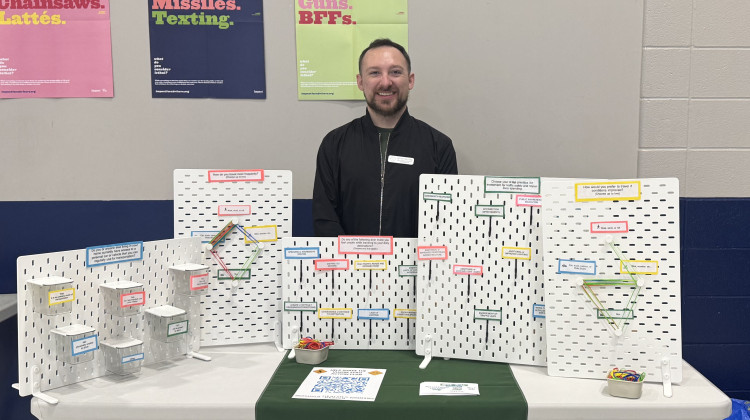
Keystone has a strict attendance policy that only allows for seven unexcused absences before termination, according to the suit. The employee had requested time off for doctor’s visits and surgery, but the company allegedly denied his request.
Mike / PixabayFederal officials filed suit Wednesday against major northern Indiana RV manufacturer Keystone for alleged disability discrimination against an employee.
The U.S. Equal Employment Opportunity Commission suit says an employee with a disability was fired for taking time off to attend his medical appointments and surgery.
The company, a subsidiary of Thor Industries, did not respond to requests for comment.
The company allegedly knew he has “a rare, chronic, and painful” disease called cystinuria which “creates episodic golf-ball-sized kidney stones.”
Keystone has a strict attendance policy that only allows for seven unexcused absences before termination, according to the suit. The employee had requested time off for doctor’s visits and surgery, but the company allegedly denied his request.
The employee had six unexcused absences before his surgery in January 2020, EEOC lawyers wrote, all but one of which were a direct result of his disability. On the day of his surgery, the company decided he had seven unexcused absences and fired him.
The commission argues this action violated the Federal Americans with Disabilities Act, because that law requires reasonable accommodations, including time off, for people with chronic diseases. And firing the employee for taking that time off for healthcare was equivalent to firing him because of his disability status.
The EEOC is asking for a jury trial in Indiana’s Northern District Court, where it will seek damages and back pay for the worker as well as a court order to require the company to provide accommodations in the future.
State agency Indiana Disability Rights often helps people with disabilities navigate issues with employment discrimination and sometimes refers cases to the EEOC. It was not involved in this case.
“A lot of times we see employers just say no to a request without following through on the interactive process to try and identify an alternative accommodation,” said attorney and IDR Policy Director Emily Munson.
In an interview, Munson didn’t speak directly about the case against Keystone. The EEOC alleges Keystone failed to engage in the legally required “interactive” process to find an accommodation it could approve of in this case.
Munson said IDR has dealt with cases where an employee with a chronic illness did not get the accommodations they were entitled to.
“Unfortunately, sometimes we did see employers that were not willing to work with that employee,” she said. “And either wrote them up for not coming into work while they were at the medical appointment or would terminate the employee.”
IDR usually tries to take a “more carrot than stick” approach with employers, she said, favoring explaining the benefits of hiring and accommodating workers with disabilities rather than threatening lawsuits.
That’s partly because people fear reporting discrimination would fray relationships with their employers and current co-workers, Munson said. Some worry going through public litigation might get them labeled as a “troublemaker” and reduce their chances of being hired elsewhere.
The law “does protect them from being retaliated against by an employer” after filing a complaint or lawsuit over discrimination, she said. But “since it's a right an employer might go ahead and retaliate against someone anyway.”
This puts people “between a rock and a hard place” when it comes to asserting their rights in the workplace.
“That's why we always advise trying to take care of things as amicably as possible,” she said. “But sometimes, obviously, that's just not possible. And individuals might need to take stronger action.”
In a statement, the commission says it only sued after attempted private negotiations with Keystone failed.
Munson suggested anyone who believes they are being discriminated against on the basis of disability reach out to IDR, EEOC or other organizations like the federally run Job Accommodation Network, which offers “free, expert, and confidential guidance on workplace accommodations and disability employment.”
In 2021, people with disabilities were about twice as likely to be unemployed, according to the Bureau of Labor Statistics.
Contact reporter Adam at arayes@wvpe.org or follow him on Twitter at @arayesIPB.
9(MDAyMzk1MzA4MDE2MjY3OTY1MjM5ZDJjYQ000))
 DONATE
DONATE






 Support WFYI. We can't do it without you.
Support WFYI. We can't do it without you.